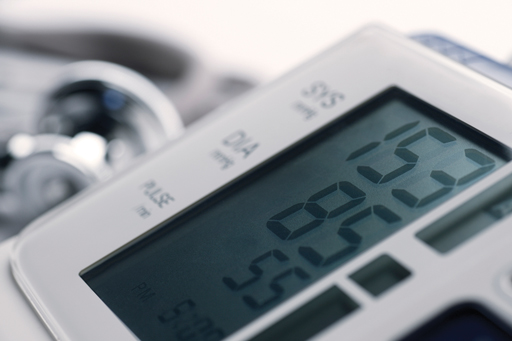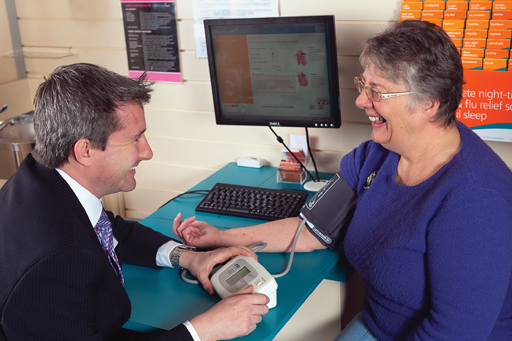Analysis

Health screening: Testing times
In Analysis
It’s time to delve deeper into health discussions. Broaden your understanding of a range of pharmacy news and topics through in-depth analysis and insight.Bookmark
Record learning outcomes
As the move towards greater self-care in health gains momentum, technological advances mean that pharmacy has a bigger role to play in screening and diagnostics.

Learning objectives
After reading this feature you should be able to:
• Discuss how health screening can be integrated into your pharmacy practice
• Identify those tests that can be undertaken in pharmacy
• Recognise how pharmacy professional practice can develop and grow in this area.
Â
While health screening in pharmacy certainly isn’t new, there are significant opportunities to develop and grow pharmacy professional practice in this area in the coming years. “The move to personal responsibility and the shift from institutionalised care to self-care makes pharmacy the ideal setting for diagnostics and point-of-care testing,†says Mark Robinson, director of Connect2Pharma.
This is not only because point-of-care tests have improved and results are often available in minutes rather than days, he says, but also because people now expect that level of response. “There are many pharmacies already delivering highly technical services – but these are isolated and poorly communicated. We do need to drive this forward.â€
Malcolm Harrison, senior manager, projects and contract development at Boots UK, agrees. “There is a wide range of tests presently available at Boots UK, but currently there is no consistency due to the variation in local commissioning. We have obviously sought to develop our range of diagnostic services with COPD ‘lung age’ micro-spirometry testing as part of the Community Pharmacy Future project and the sore throat ‘test and treat’ pilot.
“We are delivering chlamydia screening, NHS Health Checks that include cholesterol tests alongside HbA1c measurement in some locations, as well as INR clinics, mole screening and atrial fibrillation monitoring – and we expect this range of screening to expand further.â€
Health screening and diagnostics offer pharmacy contractors an opportunity to generate income by expanding into private services, says Laura Reed, services development manager at Numark. “This can range from home testing kits for everything from STIs to fertility and even cancer screening, to in-pharmacy diagnostic services such as diabetes and infections such as Strep A and influenza.â€
Connect2Pharma has developed ‘parcels of care’ that enable pharmacists to deliver services that offer a benefit to patients, fill a gap in NHS provision and provide the pharmacy with a revenue stream. Services currently available include:
• Heart checks; testing for coeliac disease
• Strep A and sore throats
• Influenza A & B
• Menopause
• Chlamydia; prostate-specific antigen (PSA).
Barriers
The barriers to entry – commissioning, fair funding, current workload pressures, workforce development and integrating (not least through IT) pharmacy into the wider primary and secondary care systems – are not new ones for community pharmacy, but are at last being recognised and tackled, says Malcolm Harrison.
“We are making progress when it comes to testing – both through the local conversations led by LPCs, the national work of our trade associations, professional body and negotiator and, not least, the support given by the National Innovation Accelerator (NIA) programme that is getting these barriers discussed and solutions sought by the NHS,†he says.
Build up trust
An essential part of developing a successful health screening service in pharmacy is to build up consumer trust, says Laura Reed. “The consultation provides an opportunity to build on the relationship with the patient, offering a chance to give advice as well as direct them to other services.â€
It is also essential to communicate the services you are offering to GPs in your area so you can work together effectively. There may be an opportunity for GPs to refer patients to you for screening and diagnostics if a patient does not qualify under NHS criteria, or if they are unable to book a GP appointment at a convenient time. Numark provides information and a range of resources to help its members set up and expand their screening and diagnostic service offer.
Heart health
The NHS Health Check service is a national screening programme targeting people aged 40-74 years to assess the risk of heart disease, diabetes, kidney disease and stroke.1 So far, only a small number of pharmacies have been commissioned to deliver the service but an evaluation has shown that they reached people with modifiable risk factors, identified those requiring further investigation and referred appropriately.2
Diabetes and HbA1c
Community pharmacies already offer diabetes risk assessments for type 2 diabetes. “We have experience of providing type 2 diabetes screening service checks in community pharmacies for over 13 years,†says Sam Preston, prescription and services manager at Celesio UK.
“The fact that we have now performed over 1.5 million checks shows that pharmacy is an ideal place to provide such interventions. Our services extend into supporting people with a diabetes diagnosis to manage their condition effectively, such as foot care awareness and medicines advice, which goes some way to support the multi-speciality care required to manage diabetes.â€
Even for people who have been diagnosed, pharmacies may be able to help identify those at risk of complications by screening for high HbA1c levels – one of the annual checks NICE recommends for people with diabetes.3
The A1CNow diagnostic kit, for example, can be used in the pharmacy or at home and, according to the manufacturer, is 99 per cent accurate compared to a certified reference laboratory.
Â

Strep A
In the news recently was the Strep A throat test scheme undertaken in 35 Boots stores. The service aims to ensure that viral infections are not inappropriately treated with antibiotics and the spread of infection is reduced, preventing complications of infection and saving GP time.
With the help of the National Innovation Accelerator (NIA) programme, Boots is continuing to work with the Academic Health Science Networks and commissioners to facilitate its use across the community pharmacy sector.
Numark is also launching a pharmacy-based Strep A testing service for sore throats. Numark’s service will include training materials for members, marketing materials and signposting to order the testing equipment.
Coeliac disease
Community pharmacies using a point-of-care test such as Simtomax can identify and refer patients for confirmatory coeliac disease testing with high levels of customer and service provider satisfaction, according to a recent proof-of-concept study.4
The study, in 15 pharmacies, focused on men and women aged 18Â years and over receiving prescribed treatments or requesting OTC treatments for either IBS and/or iron, vitamin B12 or folate deficiency anaemia with no previous diagnosis or investigation for coeliac disease. The test uses a finger prick blood sample.
Of the 551 individuals tested, 52 (9.4 per cent) tested positive. The test has a sensitivity of 93.1 per cent and specificity of 95 per cent, with a negative predictive value (NPV) of more than 99.1 per cent, so may be useful in screening out coeliac disease.
Hepatitis C
In a recent study5, 22 pharmacies on the Isle of Wight offered dry blood spot testing for hepatitis C, blood borne viruses and syphilis, to anyone attending for needle exchange and opiate substitution therapy. (In 90 per cent of cases, hepatitis C is acquired through injecting drug use.6)
Each patient underwent pre-test counselling with a trained pharmacist and the sample was then sent off for testing. In the nine-month pilot, 88 people were tested compared to 34 tests in the same period carried out at the Island Recovery Integrated Service (IRIS), with 7 and 9 per cent of people testing positive respectively.
Chlamydia
Of the 1.5m chlamydia tests carried out in 2015, over 129,000 positive diagnoses were made in England among young people aged 15 to 24 years – the target population for the National Chlamydia Screening Programme.
Anyone under 25 years who is sexually active should be screened for chlamydia annually, and on change of sexual partner. Men who have sex with men (MSM) should test annually for HIV and STIs, and every three months if having condomless sex with new or casual partners.7
In 2015, 17,374 chlamydia tests were carried out in pharmacies, of which 8.3 per cent (1,449) were positive.
HIV
As part of a Public Health England (PHE) initiative8, the National HIV Prevention Innovation Fund awarded funding to 13 projects that offered new and innovative ways of delivering HIV prevention.
One such project is OutREACH Cumbria, which is working to deliver a pharmacy-based rapid HIV testing service in selected pharmacies across Cumbria. Anyone can receive a free HIV test with the result available within approximately 15 minutes.
Positive result
Mark Robinson believes that pharmacists need to make health screening and diagnostic testing a routine part of their practice. “General practice is under huge pressure and urgently needs a programme that reduces demand. Community pharmacy is the only provider that has the necessary presence and capacity.†The opportunity is huge, he emphasises.
“The advantage for people is that community pharmacy can be an alternative provider of healthcare. It may start as [a] private [service], but could be commissioned in the future.â€
Sam Preston agrees that accessibility is key with people able to pop in to see a pharmacist, often with no need for an appointment. “Community pharmacy is set up to serve patients; the infrastructure is already focused on putting the patient first with fast and easy access to services and advice.â€
Malcolm Harrison believes pharmacy can play a “major role†in building on the success of diagnostic services such as chlamydia screening and long-term condition management testing, such as INR monitoring clinics.
“Rapidly advancing technology, linked to pharmacists supplying treatments under patient group directions or as independent prescribers, provide a high quality, convenient service for patients that is generally much more cost-effective than existing pathways, such as having to book an appointment at a GP surgery.
“Innovation in testing technology is bringing more and more tests to pharmacy, where people can benefit from simple and safe testing procedures that give results in a few minutes with high levels of accuracy. Coupled with utilising pharmacists’ professional skills and increasing levels of prescribing, there are significant opportunities to develop and grow pharmacy professional practice in this area in the coming years,†he says.
Innovation in testing technology is bringing more and more screening tests to community pharmacy
References
1. NHS England. Implementation of the NHS Health Check programme: england.nhs.uk/wp-content/uploads/2014/02/pm-fs-3-1.pdf
2. Corlett SA and Krska J. Evaluation of NHS Health Checks provided by community pharmacies. Journal of Public Health (2015): http://jpubhealth.oxfordjournals.org/content/early/2015/10/28/pubmed.fdv153
3. National Institute for Health and Care Excellence. Type 1 diabetes in adults: diagnosis and management, 2016: NICE.org.uk/guidance/ng17
4. Urwin H et al. Early recognition of coeliac disease through community pharmacies: a proof of concept study. Int J Clin Pharm (2016) 38:1294-1300. DOI 10.1007/s11096-016-0368-4: http://link.springer.com/article/10.1007 per cent2Fs11096-016-0368-4
5. Buchanan R et al. Integrating community pharmacy testing for hepatitis C with specialist care. Clinical Pharmacist, 2015: pharmaceutical-journal.com/research/research-article/integrating-community-pharmacy-testing-for-hepatitis-c-with-specialist-care/20201549.article
6. NICE CKS. Hepatitis C: cks.nice.org.uk/hepatitis-c
7. Public Health England. Health action report: Sexually transmitted infections and chlamydia screening in England, 2015: gov.uk/government/uploads/ system/uploads/attachment_data/file/559993/hpr2216_stis_CRRCTD4.pdf
8. Public Health England: gov.uk/government/news/innovative-hiv-prevention-projects-awarded-600000
